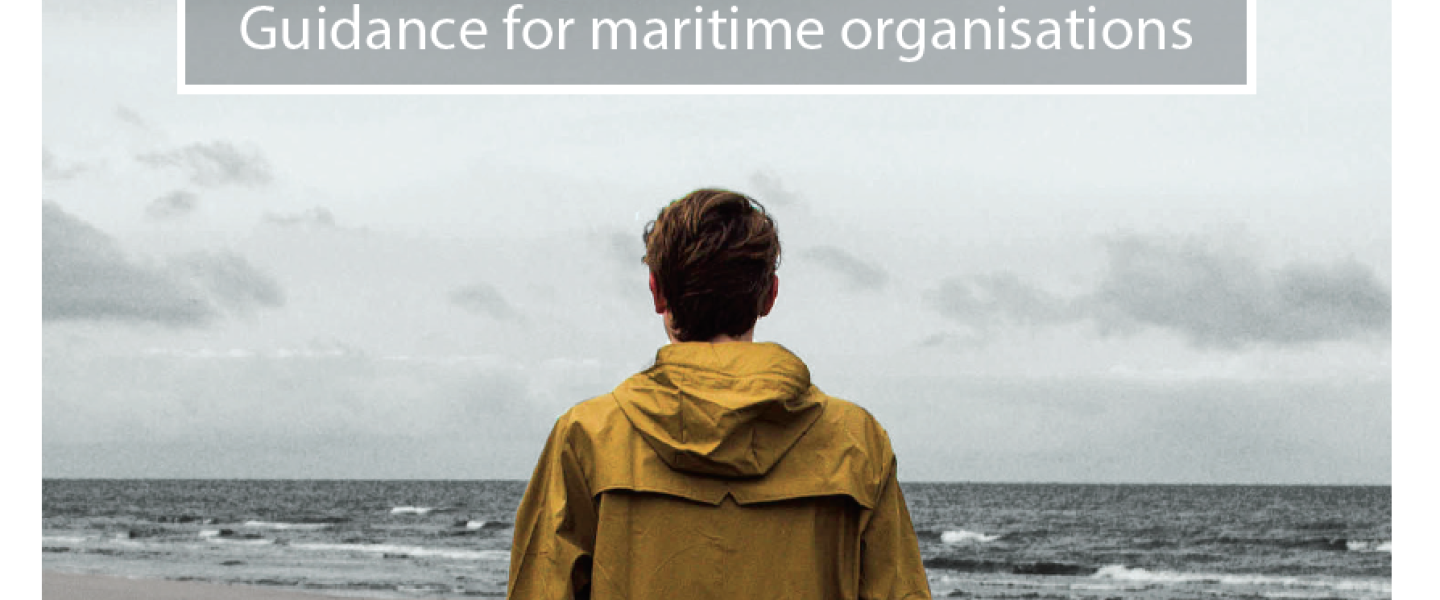PRESS RELEASE
IMMEDIATE
Human Rights at Sea collaborates to produce guidance document on caring for seafarer mental welfare
UPDATE

Authored by Professor Neil Greenberg, Managing Director of March on Stress and Professor of Defence Mental Health at King’s College London on behalf of Human Rights at Sea, the new publication, “Managing Traumatic Stress – Guidance for Maritime Organisations” aims to provide a top-level guidance to senior management to help improve the mental health of seafarers by providing education and evidence-based approaches within the maritime industry.
“Better mental health support for maritime not only provides moral benefits, there are also legal and financial benefits to organisations who focus on supporting their most important asset – their people” states Professor Greenberg.
Published by The Nautical Institute in partnership with Human Rights at Sea, the new publication explains about post-traumatic stress disorder (PTSD), and provides direction about how it can be addressed within the maritime environment for crews, as well as educating the commercial management structures.
“Seafarers operating in areas at risk of piracy face the effects of trauma if caught up in an incident as well as the trauma faced by the perceived threat of becoming involved in an incident” explained Gavin Rogers, Operations Director, March on Stress.
Professor Neil Greenberg, commented that: “I’m delighted to have worked with Human Rights at Sea on this important publication. While only about 3% of the UK population are likely to suffer from Post-Traumatic Stress Disorder (PTSD), personnel working in high-risk or trauma exposed organisations experience much higher rates of PTSD. There is however very good evidence that the risk of developing PTSD or other mental health conditions can be substantially diminished if organisations put in place evidence based measures that can prevent and detect issues at an early stage.”
David Hammond, CEO, Human Rights at Sea, added: “Our charity is delighted to have been able to work with the subject matter expertise provided by Professor Greenberg in this new mental health publication to benefit all working in the maritime environment. Mental health is a very important matter for those operating both at sea and throughout the maritime supply chain, but it is often overlooked and misunderstood. This new and well-articulated voluntary guidance is therefore provided as an educational and awareness tool in order to support resilience at sea.
Human Rights at Sea is additionally very pleased to be closely supported in the collation, design and delivery of this publication by The Nautical Institute and the charity looks forward to future collaboration and the delivery of more innovative maritime publications.”
The close collaboration shows the industry’s determination to highlight this important issue within the maritime sector.
Bridget Hogan, Director of Publishing and Marketing, The Nautical Institute commented: “As the international representative body for maritime professionals involved in the control of seagoing ships, The Nautical Institute is pleased to be involved with the publication of Human Rights at Sea’s timely guidance on managing mental health issues at sea. Professor Greenberg’s work complements the Institute’s recent publications and other initiatives on the human element and particularly human performance and limitation.
It is hoped that this guide will lead to more open discussion, both within companies and within the industry, about mental health at sea, ending some of the stigma that attaches to the subject. It provides practical guidance for ship managers, ship operators, human resources departments and all involved with the welfare of seafarers around the world.”
To be launched at the International Maritime Human Rights Conference, London, 14 Sep 16.
-Ends-
About
Human Rights at Sea is an independent maritime human rights charity registered in England and Wales established for the benefit of the international community for matters concerning explicit engagement with human rights issues in the maritime environment. Its Mission is to explicitly raise awareness, implementation and accountability of human rights provisions throughout the maritime environment, especially where they are currently absent, ignored or being abused.
March on Stress is a psychological health consultancy. Our work is driven by a belief that anyone in psychological distress, whether as a result of exposure to potential trauma or the consequence of other (more day-to-day) occupational stressors, deserves access to the right evidence-based support and care in their workplace. March on Stress is the UK’s leading commercial provider of peer support and psychological first aid training, including Trauma Risk Management (TRiM) training and Sustaining Resilience at Work training (StRaW).
The Nautical Institute is an international representative body for maritime professionals involved in the control of sea-going ships. The Nautical Institute is also a major maritime publisher with over 200 titles to its credit. Many of these books have become industry standards and are acknowledged by the International Maritime Organisation (IMO). The hallmark of Institute publications is that they are ‘Practical Guides’ written by practitioners for practitioners.
Post-traumatic stress disorder (PTSD) is an anxiety disorder caused by very stressful, frightening or distressing events. Someone with PTSD often relives the traumatic event through nightmares and flashbacks, and may experience feelings of isolation, irritability and guilt.
For further information:
David Hammond, CEO, Human Rights at Sea, Langstone Technology Park, Langstone Road, Havant, PO9 1SA, UK
Email: enquiries@humanrightsatsea.org
Web: www.humanrightsatsea.org
Publications: www.humanrightsatsea.org/publications
